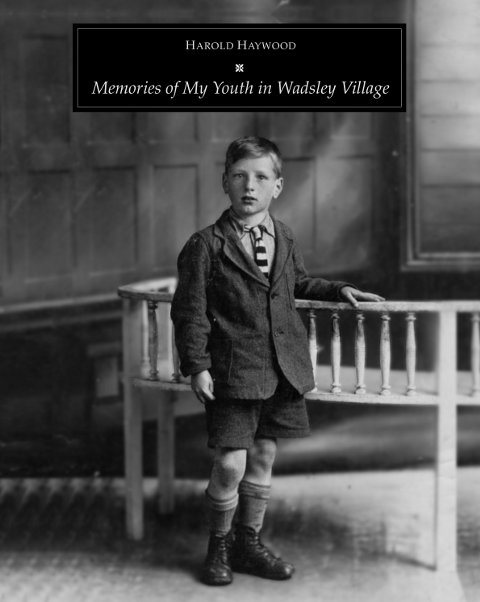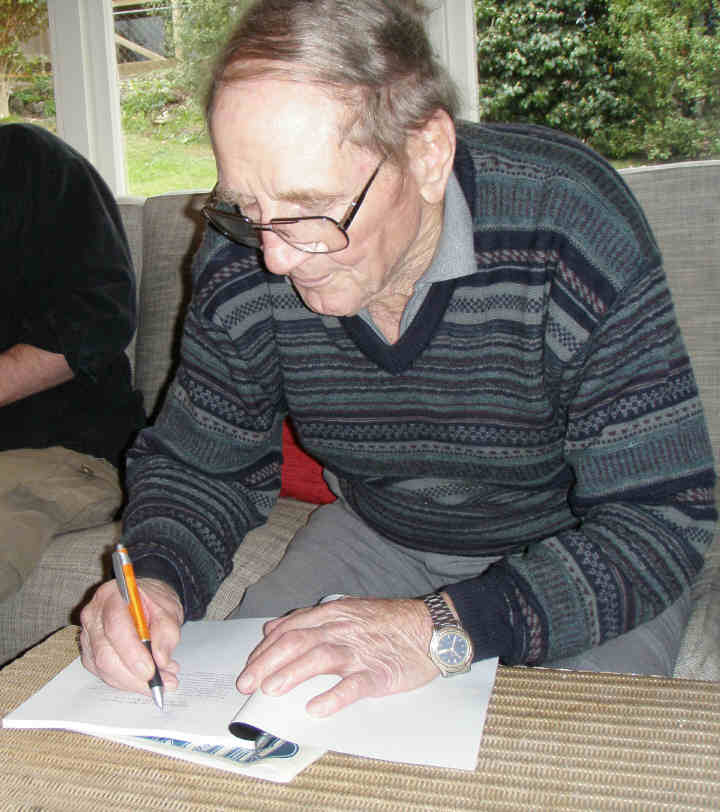I received some interesting emails a couple of weeks ago when I posted an old short story of mine (originally a chapter from an unfinished novel) called 'It was a Beautiful Day'.
One reader wondered when she'd be able to buy the finished novel. When I explained that I wasn't writing this type of short story anymore, she asked (quite reasonably): "So what type of stories do you write these days?"
Another reader summed up her response to the piece by saying that it was: "very well written [but] not exactly my cup of tea (my sort of story has way more cups of tea in it, for starters)".
It occurred to me that -- in one fell swoop -- I could answer the first reader's question and (hopefully) make the second reader a little happier. I've located a recent-ish story of mine that features several cups of tea. As always, it was written purely for my own consumption, but I thought it might be vaguely interesting for comparison purposes with 'It was a Beautiful Day'.
Disclaimer: You may need to have experienced the Christchurch squatocracy in their native habitat in order to fully appreciate this story.
--------------------
The Funeral
Sarah Holt gazed out of the window, and said: “I’m seeing Gary.”
Christopher, her fiancé, slipped an affectionate arm around her. He peered over her shoulder into Hagley Park. “Where?” he asked.
It was only when he caught sight of her expression that he realized what Sarah was saying.
Upstairs, Sarah’s parents were dressing for the funeral. “My point,” said Laurence Holt to his wife, “is that she’s your Great-Aunt, not mine. I don’t see why I should be giving a speech.”
“You know I’d be far too upset to say anything.”
“No, I don’t, Marjorie. As far as I can tell, you barely knew her. In thirty years of marriage, you’ve never mentioned her name in my presence.”
“Honestly Laurence, don’t be ridiculous. I’ve often spoken about Great-Aunt Jean. I used to visit her with mother. She embroidered Sarah’s pencil-bag when Sarah started school.”
Marjorie smoothed her dress, and inspected herself in the mirror. She took pride in the fact that, at fifty-eight, her figure was almost as good as on the day of her marriage. Her face, of course, showed the years, and her hair, neatly bobbed, had long ago made the transition to grey. But, like Great-Aunt Jean, she had aged gracefully, more-or-less. And that was something.
Her future son-in-law, Christopher, drove them to the funeral. Laurence had wordlessly installed himself in the passenger seat—in the annoying way that men do—and so Marjorie was forced to sit in the back, wedged uncomfortably between Sarah and Claire.
Claire, her youngest, was revisiting their argument from the previous evening. “I still don’t know why I have to go to the funeral. I’ve never even met Great-Aunt Jean.”
“You have, actually,” said Marjorie. “I particularly remember the occasion because she had one of her turns, and wouldn’t believe that you were my daughter. She told me that you were an imposter.”
Claire rolled her eyes, an annoying habit that she’d recently developed. “Well, I hope there won’t be prayers or hymns at the funeral, because I’m an atheist and it’d be hypocritical of me to join in.”
Sarah glanced irritably at her sister: “You know, just for once, Claire, could you possibly think of others? Mum doesn’t need a big drama from you today. If Great-Aunt Jean wanted a religious funeral, then—frankly—her wishes override whatever beliefs you happen to have.”
“You’re an atheist, too,” said Claire.
From the driver’s seat, Christopher gave a scornful snort. “Don’t let that bother you, Claire,” he said. He flicked the indicator to turn into the funeral home. “That’s the least of Sarah’s double-standards at the moment.”
The funeral director ushered them into the chapel. Marjorie and Laurence were led to the front pew; Sarah and Christopher were assigned seats just behind them. Claire slouched her way to the back row.
Laurence glanced at the other mourners. “Quite a turnout,” he observed.
“What do you think Christopher meant about Sarah having double-standards?” asked Marjorie in a worried undertone.
The minister was having the usual difficulties with the microphone. After several minutes of fumbling, he began: “We are here to celebrate the life of Jean Anne Deans: beloved aunt, great-aunt, and great-grandaunt to many here today. She herself, of course, was the proud great-grandniece of the English novelist Jane Austen...”
Behind her, Marjorie heard Sarah whisper: “How could you say something like that, Christopher? In front of my parents?”
“Well, how could you do something like that, Sarah? And with that jumped-up little twit.”
Sarah’s whisper became slightly louder: “For a start, he’s not a twit. Gary is a highly successful lawyer.”
“He’s a lawyer for a property developer. That’s hardly successful in my book.”
“I’m also a lawyer for a property developer, Christopher, so don’t spare my feelings or anything.”
“How long has it been going on?”
Sarah said quietly: “Oh, I don’t know. Six months, I suppose.”
“But that’s since before we became engaged!”
“I didn’t want to disappoint my mother.”
“Well, you’re disappointing everyone now, aren’t you? Me, our families, all our friends. I’ve booked the church and the reception and everything.”
“Oh, I see, so that’s what you’re really worried about: losing the deposit on the restaurant.”
“Of course it’s bloody not!” hissed Christopher. “I’m upset because my fiancée has been fucking another man. Jesus Christ!”
Marjorie closed her eyes. Around her she could sense an artificial stillness from the other mourners, as they strained their ears to listen for further details. Sarah and Christopher lapsed into a sullen, wounded silence.
The minister’s voice droned on like a bumble bee. Eventually he relinquished his position at the front of the chapel. Laurence rose, and placed his notes on the lectern.
“I first encountered my wife’s Great-Aunt Jean when she embroidered a lovely pencil-bag for my daughter, Sarah,” he said. “Of course, Sarah is now a grown woman who will shortly be married to her fiancé, Christopher.”
Laurence paused, and squared-up the pages of his speech notes. “Possibly,” he added.
When the service was finally over, the chapel doors opened automatically to let mourners into the reception area. Marjorie disapproved of automation in chapels. It seemed too mechanized—as if the funeral were a production line.
Sarah was the first person through the doors. Marjorie hurried after her, but became briefly trapped in the crowds circling the sandwiches and cakes. She winced as she detected Claire’s determined voice: “I’d like my cup of tea with soy milk, please. I don’t believe in exploiting animals.”
She found Sarah outside, standing beside the car.
Marjorie began, “Sarah, what’s going on?” but then changed her question: “What on earth are you doing with that cigarette?”
“It’s called smoking, Mum. I’m very stressed at work. You wouldn’t understand.”
“Is it because of this Gary person? Is he a smoker?”
“ Mum, I don’t want to talk about it, okay!”
“I’ll ask your father to speak with you,” Marjorie decided.
People were spilling out of the reception area now. Marjorie was forced to employ some deft footwork in manoeuvring her way inside again. Then she was waylaid by Ruth, a cousin whom she hadn’t seen in several years.
Marjorie was disengaging herself from the conversation when she spotted a familiar face. “Timothy!” she called. “I thought you weren’t able to come. Ruth, you remember my son?”
Timothy was Marjorie’s middle—and least difficult—child. He gave his usual laid-back grin: “Kylinda had a last-minute cancellation; so we just hopped into the car and drove up.”
“Hello, Mother Holt,” said Kylinda. “I thought it was so important for Tim to attend the funeral.”
“Ah, Kylinda,” said Marjorie, her delight ebbing a little. “Look, I’ll catch-up with you both in a minute; I have to speak to Laurence. But you’ll be staying with us, I hope? Have you met my cousin? Ruth, this is Kylinda, she’s a dancer, more-or-less.”
“Actually, she’s a dance therapist for behaviourally-challenged children,” corrected Timothy.
“Biters, pinchers, spitters, self-harmers, child-arsonists, and so on,” Kylinda told Ruth.
“Timothy and Kylinda are based in Timaru at the moment,” explained Marjorie. She edged her way into the crowd.
“Is dance therapy a successful treatment?” Ruth asked politely.
“Well, that’s not really a ‘yes’ or ‘no’ question...” began Kylinda.
Marjorie located her husband in the far corner of the room. “Laurence, I need you to talk to Sarah. At once.”
Laurence swallowed a mouthful of tea. “Not a chance,” he said. “I know your schemes. It would just end up with both of them hating me; they have to sort it out for themselves.”
“Oh, for heaven’s sake!” cried Marjorie.
* * *
“What’s happened,” asked Claire. “Why is no-one talking?” The atmosphere during the car-ride home had become distinctly frosty.
Christopher drove along in silence; everyone else gazed out their respective windows. Eventually Marjorie said: “Your Great-Aunt Jean died, of course. We feel sad—that’s all.”
There was a brief silence as Claire considered this statement. “Fine,” she said. “Don’t tell me what’s going on then.”
“Anyway, I think it’s lovely that Timothy could come this weekend,” continued Marjorie. “Although I don’t know why he brought Kylinda with him, she’s so irritating. She kept calling me ‘Mother Holt’. Where in the world did that come from?”
“Perhaps it’s what they say in Australia,” suggested Laurence.
“They don’t in Neighbours,” said Claire.
“Could it be for religious reasons, do you think?” wondered Marjorie.
Timothy and Kylinda were waiting in the driveway. Christopher helped them carry their luggage inside. Returning downstairs, he found the rest of the family in the sitting room, engaged in several different conversations.
“Who’s for a cup of tea?” asked Laurence.
“I’ll have whiskey,” said Christopher.
Sarah avoided meeting Christopher’s eye. “I have a headache, Dad. I’m going to lie down in bed.”
Claire was showing Kylinda through a pile of books. “I’m reading a lot of Sylvia Plath at the moment; she’s my favourite poet. Have you read her?”
“That reminds me: did you ever buy that gas cooker, Dad?” asked Timothy. “Count me in for a cup of tea.”
Marjorie poured a small tumbler of whiskey for Christopher. Under the circumstances she felt it was the least she could do. He sat by the window, a little apart from the rest of them.
“Mother Holt?” Marjorie turned to find Kylinda at her elbow. “I’m so silly, but it seems I’ve left a few essentials in Timaru.” Unlike most Australians of Marjorie’s acquaintance, Kylinda had a tendency to over-apologize. “I know it’s my own fault, but I was wondering: would you possibly have a comb that I could borrow? One with very fine teeth? You know what it’s like working with young children.”
“I’ll see what I can do.”
Marjorie hurried down the hall and into the kitchen. She closed the door. Laurence was arranging cups and saucers on the tea-tray.
“Laurence, I have bad news: that awful Australian has brought disease into our home.”
“In what sense?”
“In the sense that she has head-lice. She’s just asked to borrow a fine-toothed comb; she alluded to the perils of working with children. What else could that mean? She must have caught them from those horrible child-arsonists in Timaru.” Marjorie was half-sobbing now. “First Sarah and Christopher decide to cancel the wedding, and now I’ll have to shave all my hair off.”
“Give her that flea-comb we used on the dog,” said Laurence. “It’s in the garage. We can sterilize it in hot water.” The kettle began to sing.
Christopher drank his whiskey; the others sipped their tea.
“Why do you keep scratching your head?” asked Claire
Marjorie stopped herself in mid-scratch.
“So how’s Nigel coping with Sarah’s engagement, Mum?” Timothy asked.
“Don’t start on that, Tim—please,” said Laurence.
“Who’s Nigel?” asked Christopher.
“Nigel is the son of Mum’s best friend,” explained Timothy. “Sarah and Nigel were intended for one another, weren’t they, Mum?”
“Like Mr Darcy and Anne de Bourgh in Pride and Prejudice,” said Claire.
“This was all before your time, Christopher,” said Marjorie hurriedly. “And, of course, I never thought any such thing.”
Claire said: “Nigel’s a millionaire lawyer. He’s horrible.”
“He’s very nice, actually,” said Marjorie. “He’s recently had some difficult personal circumstances, and he’s been terribly brave about it.”
“Serious fraud office?” asked Timothy hopefully.
“No, Nigel has discovered that—well—that he is homosexual; and he’s decided to be entirely open with everybody. ‘Coming out’, is the phrase, I believe.”
“Mum’s going to try and match-make him with you now, Tim,” said Claire.
Marjorie ignored her. “Nigel has a partner. He’s called Jack. In fact, you’ll meet him very soon; I’ve invited them here for the weekend.”
“Oh, not this weekend,” groaned Timothy.
“I thought it would be a nice idea to have the whole family around to support Nigel in his new lifestyle,” said Marjorie defensively.
“In other words,” explained Laurence. “Your mother doesn’t feel comfortable with Nigel and Jack, and she wants all of you here to support her.”
In the bedroom, Sarah was making a phone call.
“I’ve told Chris.”
“Sarah—great to hear from you. Told him what?”
“You know, about our relationship.”
“Relationship?” said Gary.
Sarah was disconcerted by the question mark.
“Yes,” she said. “What we’ve been doing these last months.”
“Oh right, of course.”
“Christopher has agreed that we should call off the wedding. And I really do think it’s the best thing for him in the long run; as well as the best possible outcome for us, too.
“Us?” said Gary.
“So that we can take our relationship to the next level.”
“Can you hold the line?” Sarah heard the squeak of Gary’s swivel-chair, and rapid footsteps as he walked across his office and closed the door.
“Well, the thing is, Sarah,” said Gary, “Er, how to put this: I’m not really looking for a relationship at the moment. I mean, I thought we were just having fun, right? So, you know, I don’t see any need to call things off with Chris or anything.”
Like all considerate modern visitors, Nigel called on his mobile phone five minutes ahead of time to notify them of his pending arrival. At Marjorie’s insistence, the entire family assembled on the front lawn, so that greetings and moral support could be conveyed at the earliest possible opportunity.
“Here comes their car,” said Claire.
“Two cars,” said Timothy. “Travelling separately. Possibly a slightly gay thing to do.”
“Stop it, Timothy!” ordered Marjorie. She donned her most welcoming smile: “Now please remember everybody—act naturally!”
Nigel was fashionably tanned, and dressed with his usual expensive casualness. “Marjorie!” he said, giving her a hug which she returned with slight awkwardness.
The combined gaze of the rest of the welcoming committee was focussed on the second car.
Laurence was the first to regain his composure. He held out his hand and stepped forward. “You must be Jack,” he said. “Short for Jacqueline, I presume?”
They had reached the front hall before Marjorie was able to say anything useful. “Claire will show you to your room.”
“No, thank you,” said Claire. “I want to talk to you, Mum.”
“I’ll go,” said Christopher wearily. “It’s just up here. Let me carry that suitcase.”
Nigel and Jacqueline ascended the stairs; Laurence gave Marjorie a long, measuring look: “How is this possible?”
“I can’t imagine, Laurence; I’m as surprised as you. Perhaps I misunderstood something?”
“So—let’s get this straight—what did Nigel’s mother tell you, exactly?” asked Timothy.
“She said he had a new partner called Jack.”
“Did she say that Nigel was gay, and that Jack was a man?”
“Well, not exactly. She’s not the sort of person who makes sudden announcements. But she said a number of things, which I took to be euphemisms.” A sudden thought struck Marjorie. “Of course, who’s to say that Jacqueline has always been a woman. There’s something rather masculine about her, don’t you think?”
Timothy and Laurence spoke simultaneously: “No.”
Marjorie wrung her hands in despair. “Well, I don’t know how I could have made such an embarrassing error.”
* * *
“Don’t think of it as an alarm clock, Claire,” said Nigel. “Think of it as an ‘opportunity clock’. To me, each day is an opportunity to go out and make a success of myself. The way I look at it, life’s like a game of rugby. And money’s the way you keep score.”
“So do you want to borrow my alarm clock or not?” asked Claire.
“I must say, it’s quite a co-incidence how much you and Sarah have in common,” observed Marjorie to Nigel. “Both of you successful lawyers, both of you go-getters, both interested in...” Her inspiration faded, “other things, no doubt.”
Sarah strode into the sitting room, and flopped down into a chair. “Good God, how much longer is Kylinda going to be in the bathroom? She’s been combing her hair for half-an-hour at least. She must have obsessive-compulsive disorder.”
Marjorie shot a meaning-filled glance at Laurence.
“So Nigel, how’s the lawyering business these days?” asked Laurence hurriedly. “Got any criminals off the hook lately?”
Nigel embarked on a monologue about his recent legal successes.
Marjorie said to Sarah: “We’re walking over to Hagley Park in a minute. Nigel says he wants to practice his putting or his driving or something. Are you interested in coming?”
“Will Christopher be going?”
“I’ve asked him to take Jacqueline to Mona Vale; she’s never been there before.” Marjorie lowered her voice to a confidential whisper. “Apparently she’s from Upper Hutt.”
Three hundred metres upstream, Christopher was leading the way across the weir. “Your in-laws have a lovely house,” observed Jacqueline.
“Future in-laws,” said Christopher. “Or rather ex-future in-laws. Sarah and I have just broken up.”
“Sorry, have I been tactless?”
“Not at all. And don’t be sorry, I’m beginning to think it was a lucky escape. Seems I was never good enough for Sarah or her family. Didn’t go to the right school, convinced her to move to Auckland with me—you know.”
“Sounds like Nigel’s mother,” said Jacqueline. “She’s not exactly thrilled with her son’s taste in girlfriends. I’m sure she didn’t spend a fortune on his education for him to end up with a music teacher from a state school.”
“Christchurch’s obsession with schools drives me insane.”
“Not to mention the automatic assumption that Canterbury is superior to all other provinces,” said Jacqueline. “Nigel’s mother always introduces me as coming vaguely from ‘The North’—as if Upper Hutt were Gomorrah or something. Mind you, she’s a saint compared to Nigel’s friends down here. They were at Christ’s College with him, and they’re utterly odious.”
“Sarah’s a lawyer for a property developer. You can imagine what her friends are like.”
They wandered into the rose garden. “I only really like the old-fashioned roses with a scent,” said Christopher.
“Yes, the other ones seem so insincere, don’t they?”
At the entrance to the fernery, Christopher gestured for Jacqueline to go ahead, but she said, “You first,” and he said, “No, after you.” And they ended up ducking through the arch at the same time, almost getting themselves jammed together in the opening.
“Sorry,” said Christopher, mortified by his own clumsiness.
Jacqueline laughed. Her hand was resting casually against his shoulder; her face so close to Christopher’s that he could almost have leant forward and kissed her. Although, as it happened, it was Jacqueline who slid her arms around his neck, and then pressed her lips against his.
In his study, Laurence was congratulating himself on a successful escape from watching Nigel practice golf. He’d selected a Raymond Chandler novel from his shelves, and was making himself comfortable in the window seat. The sound of bees humming in the garden was pleasantly soporific; the afternoon sun warmed his back. Sleep stole pleasantly over him.
Deep in slumber, Laurence became vaguely aware of raised voices and shouting. The realization that he was avoiding conflict made his dreams seem even sweeter. It was only his youngest daughter’s demanding tones that eventually woke him.
“Is there an emergency, Claire?” he asked, without opening his eyes.
“Nigel remembered that his golf-clubs were in Jacqueline’s car. So we all went after her to get the keys. And then we saw Christopher and Jacqueline kissing in the fernery.”
“Probably just a friendly kiss,” suggested Laurence hopefully.
“With open mouths, Dad. And tongues and tonsils and everything.”
“Good grief!” Laurence sat up.
“So Nigel and Jacqueline argued all the way back here, and then Nigel and Christopher had this gigantic punch-up on the front lawn. Did you know that Nigel boxed when he was at Christ’s College? I was a bit sorry to see Christopher get beaten-up, although I suppose he deserved it.”
Laurence groaned.
“Then Jacqueline called Nigel a thug, and said she could never marry a man who resorted to violence. And then she hit Nigel on the nose with a golf club and broke it, we think. The nose—not the golf club. Then she drove off in her car with Christopher. Mum wants you, by the way.”
Marjorie was weeping at the kitchen table. Timothy and Kylinda were attempting to console her.
“Laurence, where have you been? Everything is a disaster! There has been violence in our home; Nigel and Christopher have had a fight! And now poor Sarah has been abandoned. He’s gone off with that woman from Upper Hutt.”
“Wait a minute,” said Laurence in bewilderment. “I thought Sarah had already left Christopher for Gary?”
“Who’s Gary?” asked Timothy and Claire.
Marjorie ignored their question. “No,” she sobbed. “Sarah phoned Gary and told him that it wasn’t ethical for her to have a relationship with him. She was going to marry Christopher after all! Only she hadn’t told Christopher yet because she wanted him to suffer a bit. He’s been taking her for granted, she said. Oh, Sarah really is a good girl, Laurence. She doesn’t deserve this.”
“I must say, Sarah certainly gave Jacqueline a piece of her mind,” said Timothy admiringly, “being a lawyer has improved her vocabulary no end.”
“And Nigel,” continued Marjorie. “His poor nose. It was gushing like a fountain—absolutely gushing! I’ve never seen so much blood.”
“If only I’d been able to convince him to try some rhythmic movement,” said Kylinda. “I’m sure that would’ve stopped the bleeding more quickly than an ice-pack, but he wouldn’t listen.”
Laurence massaged his temples. “And where is Nigel now?”
“He’s out on the garden seat,” wept Marjorie. “Poor Sarah is trying to console him.”
* * *
Sarah said: “You were so powerful, Nigel. I’ve never seen anyone punch like that. It was like watching a bull toss a matador.”
“Well, I think it’s important to keep yourself fit,” Nigel said. “Physically and mentally. That’s my philosophy.”
Sarah gazed at the evening light as it slanted through the oak trees. “Christchurch has beautiful sunsets, doesn’t it?”
“Yes,” agreed Nigel. “You know, funny thing about having a broken nose, it’s made my head itchy.”
“That’s odd—my head’s itchy too,” said Sarah.
Drying her eyes at the kitchen window, Marjorie watched Nigel and Sarah as they talked. At one point, Sarah rubbed Nigel’s arm reassuringly; a little later, Nigel leant over and stroked her cheek.
It was amazing how a day that had started with a funeral could, a few minor problems aside, end so happily, thought Marjorie. Later on, she would telephone Nigel’s mother, and tell her how well everything had gone.
© David Haywood, 2009.






